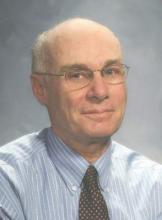For those of us who appreciate the value of science and accept its limitations, it is sometimes difficult to understand how parents can choose to not immunize their children against serious and life-threatening diseases. To some extent, the explanation may be that immunizations simply have become victims of their own success.
How many adults have a relative, friend, or neighbor whose child has died as the result of bacterial meningitis or epiglottitis? They might have had a friend whose month-long cough was eventually diagnosed as whooping cough, but how many parents know of an infant who succumbed to pertussis? If you were trained in the last decade, you may not have had first-hand experience with most of the diseases for which we now have immunizations.
Reading a recent review of a new biography of Jonas Salk triggered a stream of memories of what it was like when polio descended on the landscape of North America – unchecked by an effective immunization. Moving through communities, choosing victims seemingly at random, it was every parent’s nightmare.
I grew up in a small town in New York State, so small that its inhabitants refer to it as a “village.” Everyone in Pleasantville knew at least one family that had been touched by polio. I don’t recall being aware of anyone in my family’s extended network of acquaintances who had died of the disease, but I suspect there may have been some fatalities that my parents avoided discussing in my presence. But I knew it was a disease with a significant mortality rate, and I knew of children and adults who had luckily survived several weeks or months in an iron lung. One of my parents’ closest friends walked with a limp as a result of polio.
There was rumor in town that all five members in one family had contracted polio and incredibly survived. Their cat had allegedly died of the disease. Our community was said to be particularly vulnerable because we had a public pool. This gift from the federal government’s Works Progress Administration provided a multi-lane superhighway for the virus to spread from child to child.
Even as a young child, I could sense that a blanket of fear hung over our little village during the summer when the disease was at its most prevalent. Now, as a parent, I am surprised how well my own parents disguised the fears that they and their peers must have harbored. My sister and I were still allowed to go swimming at the pool on the hottest days, but we knew that there were other families who stayed away.
When a vaccine trial began at our school, there was no question that we would participate. In fact, I don’t recall bringing home any permission slips to be signed. Nor do I remember hearing of any families who had opted out. We always wondered whether we had received the real vaccine or the placebo. But when the trials were over and the real vaccine was available, what parent in his or her right mind would even consider depriving his or her child from protection against this scourge that had taken up residence among us? I’m sure that Dr. Blum, my pediatrician, never needed to spend more than 30 seconds trying to convince my parents or any other parents, for that matter, of the need to vaccinate against polio.
My childhood ended before the development of the vaccines against the other common viral illnesses, and as a result I contracted and survived measles, mumps, rubella, and varicella. Of course, there must have been a few children who died of the diseases that had left me unscathed, but the number of fatalities was so small that I’m sure my parents would have wondered why we would need vaccines for these “usual diseases of childhood.”
But polio was different, and while it pales in comparison to Ebola, polio and its successful eradication created a generation of parents with a respect for science and the value of immunization. However, that generation has passed, and with it the stories they could have told the parents of today. Unfortunately, vaccine refusers seem to be immune to education and deaf to the lessons history can teach. I suspect that they would have foolishly ignored my parents’ stories about polio as just so much when-I-was-your-age mumbling.
Dr. Wilkoff practiced primary care pediatrics in Brunswick, Maine, for nearly 40 years. He has authored several books on behavioral pediatrics, including “Coping with a Picky Eater.” E-mail him at pdnews@frontlinemedcom.com.


